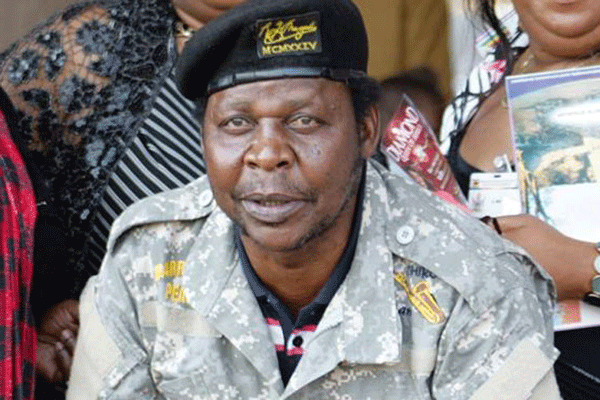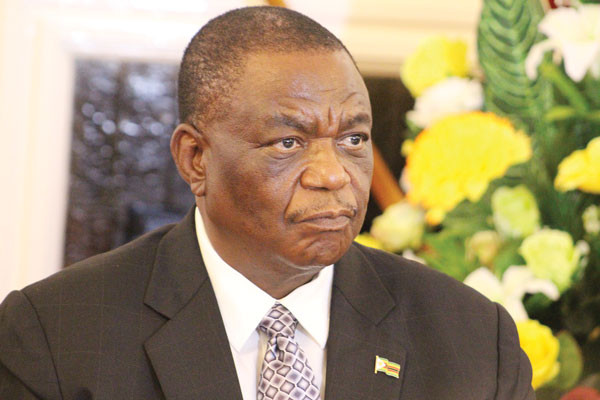
Comrade Dick “Chinx” Chingaira (Chinx is a short name for Chingaira) was born in Rusape on September 27 1955. He died on June 16 2017. He attended Chigora Primary School in Makoni district in Rusape.
in the groove with Fred Zindi

He was married to Catherine Mazuru who died in 1996 after which he re-married Patricia and Ntombizodwa Chingaira.
It is three weeks now since we laid him to rest. I was too emotional about his passing away to write about him before now.
The death of a great musician can create a collective sense of loss and nostalgia. It gives the feeling that an era has passed. It is in this regard that I pay my tribute to Comrade Chinx to honour and remember him for his contribution not only to this vibrant form of expression which we call music, but also for his role in the liberation of Zimbabwe.
I first met Comrade Chinx in 1982 just after independence when he had teamed up with Bennie Miller and Keith Farquharson for the recording of the songs Ngorimba, Zvikomborero and Nerudo. He called his band Barrel of Peace. I remember posing this question to him, ”You claim to be a revolutionary, so how do you reconcile your stance against whites when you are now recording with these white guys?” His response was very philosophical and I still have his exact words written down:
“We were fighting for freedom from white oppression. Now that we are free, we don’t have to fight the whites any more but to build up a relationship with them. This music you know it’s a transition, right, from liberation music up to the music for development and reconciliation. At the present moment we have got this unity. We want it so much and we want to develop our country and to develop our country we must be reconciled fully. And all my music should touch on these lines. The way I do it is I have to say where the bad is and where the good is. To the truth of the good is where everyone should look.
So, I shun the bad and always promote the good.”
- Chamisa under fire over US$120K donation
- Mavhunga puts DeMbare into Chibuku quarterfinals
- Pension funds bet on Cabora Bassa oilfields
- Councils defy govt fire tender directive
Keep Reading
Until his death, he remained principled and consistent with this type of thinking.
His remarks resonated very well with the ideals which were being expressed at the time by the then Prime Minister, (now President Robert Mugabe) in his reconciliation speech at independence and I thought those were very wise words indeed. This wisdom inspired me to compose my own hit song whose lyrics were: Hello Brothers, Hello Sisters, This is to remind you, We Are One Family, No matter what colour Black or White.
Later on, I followed Comrade Chinx as he continued his career with the group Ilanga, after roping in Don Gumbo and Andy Brown. Each year, during independence celebrations, Heroes’ and Defence Forces’ celebrations, the party would not be complete without the presence of Comrade Chinx. After a short stint with Ilanga, he moved on to team up with Mazana Movement Band and then later with Mazana Black Spirits.
But that is jumping the gun. Comrade Chinx’s interest in music began when his primary school headmaster, Martin Dhlamini, encouraged him to sing and to join the school choir. On completion of secondary school, Chingaira got a place to study medicine overseas but he failed to acquire travel documents and the whole plan collapsed. Then in 1974, he worked at an engineering plant in Msasa, Harare, where he was treated so badly by his white employer that he was forced to quit the job towards the end of 1975 and decided to go to Mozambique to join the liberation struggle.
As much as he was a fighter, his love for music made him a full-time organiser of Zanu PF People’s Choir.
The choir that was formed was called Takawira Choir, named in honour of the late nationalist, Leopold Takawira. Takawira Choir became just but one of many other choirs which boosted freedom fighters’ morale during the war. Chinx had joined the guerrillas with the sole aim of liberating Zimbabwe, but found himself being the leader of the Takawira Choir which in no time changed its name to Zanla Choir. The choir acted as a morale booster for the fighting cadres when Comrade Mhere Yarira who had initially led the group was transferred.
Comrade Chinx became the voice of the liberation struggle. He gave Zanla fighters morale and encouragement during the liberation war. He was a unifier, a motivator and a brave soldier. He risked his life as he went from one camp to another singing motivational songs to the gallant fighters. His songs gave the courage and a tenacious spirit for the fighters to defeat the enemy. He spent sleepless nights giving the unwavering support to the freedom fighters. His songs gave the fighters a reason to believe in the possibility of liberating Zimbabwe.
He sang his heart out until the end of the war, but did not stop there. Cde Chinx’s musical skills were later realised again at independence in 1980 when he returned to Zimbabwe. Needless to say that he survived the war and would become one of the most famous post-independence Zimbabwean musicians with hits such as Roger Confirm and Zvikomborero, which spoke about unity.
In 2000 when the land reform started, Cde Chinx, with the late former band-mate Andy Brown, backed by the Police Band, composed and recorded songs for the government which became part of the Third Chimurenga.
His hit song titled Vanhu Vose VemuAfrica which was voted The Silver Jubilee’s most inspiring song of the liberation war at the National Arts Merit Awards in 2005, captures the essence of humanity and unity in the face of injustice and unfairness. His most outstanding hit, Roger Confirm, stayed on the then Radio 3’s Hitpick charts for 25 weeks in 1989 and early 1990.
Early this year, he released an album featuring Zimbabwe Prisons and Correctional Services Civic Education despite his ill-health.
A lot of people are still confused about why Cde Chinx was never declared a national hero. Many musicians I interviewed feel that after Cde Chinx’s failure to achieve national hero status, they will never see any one of them being buried at the national shrine. In their thinking, Cde Chinx had all the qualifications of being buried at the national shrine. There are many people who differed in ideology with Cde Chinx and Zanu PF, the party he served, but there was consensus among many of them that the man deserved national hero status.
Whether one agreed or disagreed with him, one could not help but appreciate the profound love and principled stance he took in support of the ruling party. His voice will forever be identified with the liberation struggle.
Cde Chinx’s hero status debate ended on a sad note on June 23 as he was laid to rest at the Glen Forest Cemetery against all expectations. Thousands of mourners, including scores of war veterans, soldiers and musicians gathered to give Cde Chinx a good send off and to show their respect to this gallant son of Zimbabwe. Oliver Mtukudzi laid a guitar-shaped wreath as a mark of respect for Cde Chinx’s career as a musician and Elijah Madzikatire gave a moving speech about the departed comrade.
I know more about music than politics, so I dare not delve too much into the politics of Zimbabwe. What I know, though is that the government, the people of Zimbabwe and musicians in particular, lost out on a big opportunity to write their own history by failing to declare Cde Chinx a national hero. He left a legacy and a big impression to the world through his combative songs during and after the liberation struggle. May his dear soul rest in eternal peace. Respect!
Feedback: [email protected]











